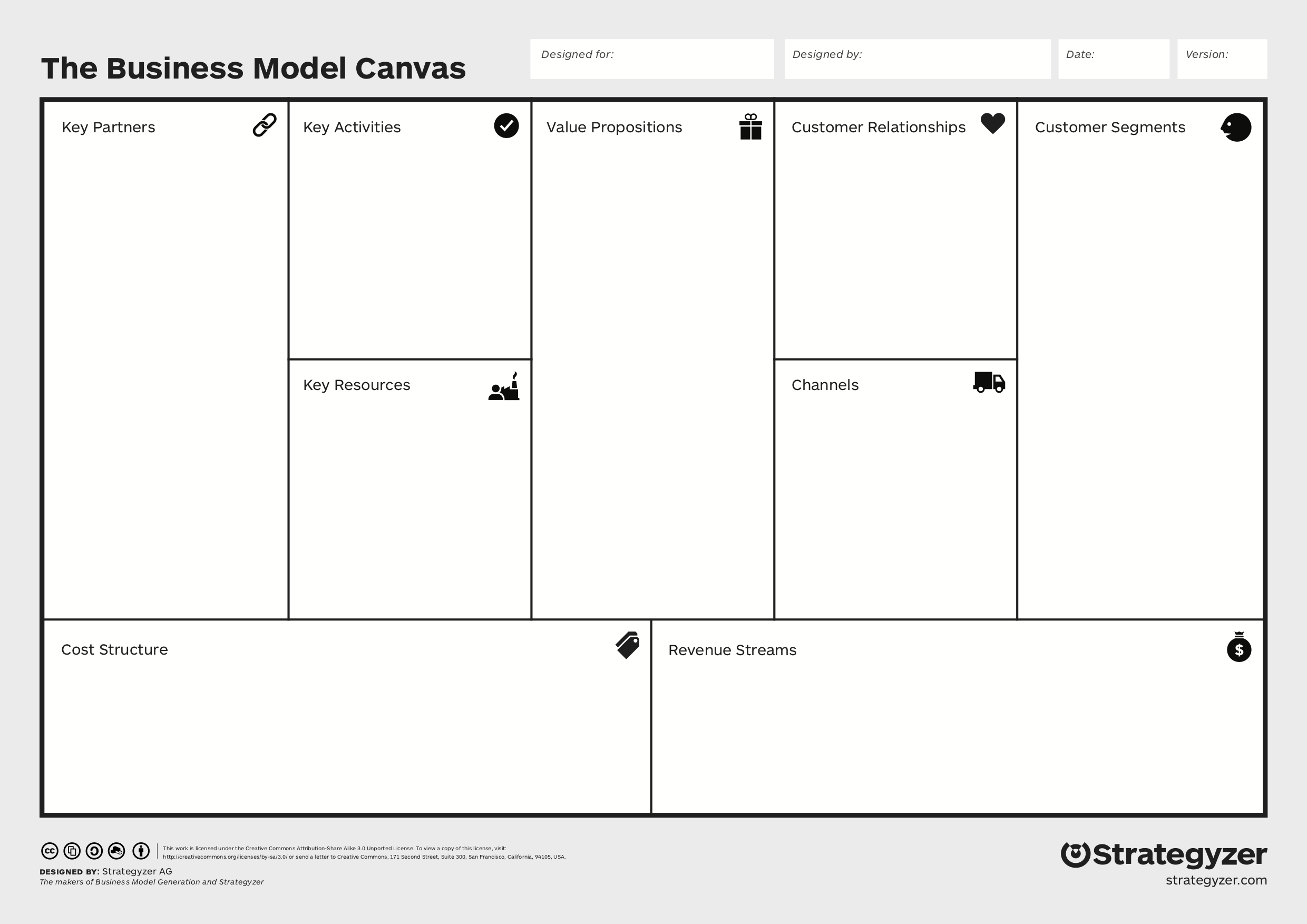Sprint to the Finish — New Series
Last week T-Mobile finally completed the acquisition of Sprint. This week, I want to reflect back a bit on some strategic moments in the company’s history.
Sprint to the Finish — New Series Read More »
Last week T-Mobile finally completed the acquisition of Sprint. This week, I want to reflect back a bit on some strategic moments in the company’s history.
Sprint to the Finish — New Series Read More »
In this article we will look at five steps that every organization needs to take in planning for the future, and those steps need to be taken for three planning horizons.
Strategic Planning Through the Pandemic Read More »
ClearPurpose is the new publication of SDG Strategies. Our tagline for ClearPurpose is “Tales and Tools for Sound Strategies”
Welcome to ClearPurpose Read More »
 On Monday we began a week-long series on how to plan through this current pandemic. We identified four steps that every organization should be taking within the context of three planning horizons. Today we finish up the series by looking at the final step: Strategy Development.
On Monday we began a week-long series on how to plan through this current pandemic. We identified four steps that every organization should be taking within the context of three planning horizons. Today we finish up the series by looking at the final step: Strategy Development.
Undoubtedly you’ve been asked “what’s your strategy” for getting through this crisis. You’ve probably had an answer, but maybe one that you weren’t even sure of yourself. Hopefully this week’s articles have provided a stronger foundation. But to answer that question, we first need to identify what a strategy even looks like. My definition is a bit unorthodox, but I like to think of a strategy as a framework that makes hard decisions easier.
Over the years, I’ve adapted some existing tools into what I call the Purpose Pyramid:

The Situation Assessment that we talked about on Wednesday provides the Panorama within which we develop our strategy. That strategy starts with our Purpose – what we are trying to accomplish. Below the Purpose are three Pillars – what are the three things that absolutely need to be true for us to accomplish our Purpose. Under each Pillar are three Proofs – the three most important things we need to do for that Pillar to become true.
Normally I think of a strategy as a long term framework, but these aren’t normal times. Many organizations will experience more change between February and December of 2020 than they’ve experienced over the past five years. This is also a period of unprecedented uncertainty, so it is completely appropriate and worthwhile to develop a strategic framework for each of the four scenarios in each of the three planning periods.
For example, your Purpose for the “right now” may be “Survive this crisis, retaining the ability to serve our customers and love our employees.” The Pillars under that Purpose may be “Cut Operational Costs”, “Launch New Delivery Models”, and “Retain Key Employees”. The specific Proof actions taken under each Pillar may differ significantly under the different scenarios for the “right now.”
The Purpose Pyramid for the “new reality” would look more like a traditional long-term strategy. For example, for my business, the Purpose might be “Honor God by helping businesses develop sound strategies.” My three Pillars might be “Deliver Customized Advisory Services”, “Develop Tools To Accelerate Strategic Decision Making”, and “Tell Tales and Share Tools”. Again, the specific Proof points will likely differ significantly under different scenarios.
Proverbs 24:3-4 tell us that “By wisdom a house is built, and by understanding it is established; by knowledge the rooms are filled with all precious and pleasant riches.” Of course, the fear of the Lord is the beginning of true wisdom, but I hope that I’ve been able to provide a framework and some tools to help you as you seek the Lord’s guidance in building a business that will withstand this current storm and those storms that will undoubtedly come in the future. Let me know if there’s anything I can do to help you through this process.
Top Photo credit: Anastasia Petrova
Planning Through the Pandemic – Part 5 Read More »

On Monday we began a week-long series on how to plan through this current pandemic. We identified four steps that every organization should be taking within the context of three planning horizons. Today we are looking at Business Modeling. This is a big topic, so today’s article is longer than normal.
The Business Model Canvas was developed by Alex Osterwalder starting in 2005. It effectively summarizes an entire business into nine elements. The Business Model Canvas has become an essential element for entrepreneurs following the Lean Startup methodology.

When you look at the canvas, there’s an obvious break between the top section (business decisions) and the bottom section (the financial impact). Less obviously, the canvas can be broken in half left and right. At the center is the “Value Proposition” and this truly is the core of the business model. We like to call the right half, the “Front End” of the business model, and it represents the decisions made in order to bring that value proposition to market. The left half, or the “Back End” of the business model, represents all the decisions that enable the business to successfully deliver that value proposition to the target customers. Successful execution of the Front End results in the Revenue Streams. Successful execution of the Back End requires investment represented here by the Cost Structure.
While your business model has likely already been well established, it is important to understand how it might change, or where there may be stresses on the business model during each of the three planning horizons under different scenarios.
The most important elements to deeply understand first in building out a business model are the Value Propositions and the Customer Segments. Osterwalder and his team at Strategyzer have developed an additional tool for understanding these elements, which they call the Value Proposition Canvas.
On the right side of the Value Proposition Canvas is the Customer Profile which provides a structured approach to understanding the targeted customer segment and their thought process in purchasing a certain type of product or service. This profile is developed entirely from the customer’s perspective using their language and based on their values and perspectives. The Customer Profile begins with the Customer Jobs section which describes what customers are trying to get done in their work and/or non-work lives. The Gains section describes the specific benefits they hope to receive and the outcomes they hope to achieve through those Jobs. The Pains section captures the risks, obstacles, and bad outcomes that make it hard to achieve the Gains when doing the Jobs.
The left side (the Value Map) corresponds to the Customer Profile, but starts with the list of Products and Services being offered to help customers do their Jobs. The Pain Relievers section describes how the Products and Services (and how they are delivered) specifically work to reduce the Pains, and the Gain Creators section similarly describes how they specifically work to deliver the hoped for Gains for the customer.
For many businesses, customers’ Jobs, hoped for Gains, and anticipated Pains will vary significantly across the scenarios and different planning horizons. Similarly, what you and your partners can do, and how best to reach and serve customers are likely to change over the coming months and under different scenarios. Therefore, it’s important that you create versions of your business model for each of the twelve combinations of scenarios and planning periods. You need to understand what changes between scenarios so that you can be ready for whatever happens. It’s also important to think through what will change when you move from the “right now” to the “restart” and finally to the “new reality”.
Proverbs 19:2 warns us “Desire without knowledge is not good, and whoever makes haste with his feet misses his way.” Take time to understand your customers and your own operations through these transitions. Your employees and customers depend on it.
Top Photo Credit: JESHOOTS.COM
Planning Through the Pandemic – Part 4 Read More »

On Monday we began a week-long series on how to plan through this current pandemic. We identified four steps that every organization should be taking within the context of three planning horizons. Today we are looking at Situation Analysis.
Yesterday we talked about the scenario planning for three planning periods: “right now”, “restart” and “new reality”. Scenario planning will give you four different named scenarios for each period. The remaining planning steps will be performed for each of the scenarios. I know that sounds like a lot of work when you’re already overwhelmed — developing 12 different sets of plans — but there’s likely lots of overlap in plans across scenarios and deeply understanding the differences will be critical to being prepared in this time of very high uncertainty.
In Luke 14 Jesus warns us to understand our situation before charging forward, saying “For which of you, desiring to build a tower, does not first sit down and count the cost, whether he has enough to complete it?… Or what king, going out to encounter another king in war, will not sit down first and deliberate whether he is able with ten thousand to meet him who comes against him with twenty thousand?”
In business, Situation Analysis is traditionally captured as a SWOT – strengths, weaknesses, opportunities, and threats. I’ve found it helpful to start with the external environment — opportunities and threats. Two frameworks that can help think through these external factors are six segment analysis (demographic, sociocultural, political/legal, economic, technological, and global) and Porter’s five forces (buyers, suppliers, substitute products, new entrants, and competitors). For each of these eleven sectors or forces you will document the current situation, known trends, and uncertainties and then evaluate how those realities, trends, and uncertainties all translate into opportunities and threats for your business.
The internal environment (strengths and weaknesses) is evaluated within the context of the external environment and relative to current and future competitors. A tool I like to use in developing the internal environment is the Blue Ocean Strategy Canvas.
In their book Blue Ocean Strategy W. Chan Kim and Renée Mauborgne introduced the Strategy Canvas which plots performance of different competitors against key factors upon which the industry currently does or could compete. Creating a Strategy Canvas for your industry will make clear where your organization underperforms or outperforms competitors. Focus on those areas that matter the most to customers and where there’s a significant difference in performance.
The resulting Situation Analysis provides a critical perspective for continuing your planning. As I’ve said before, it’s important to do this 12 times – once for each of the four scenarios in each of the three planning periods.
Top Photo Credit: S O C I A L . C U T
Planning Through the Pandemic – Part 3 Read More »

Yesterday we began a week-long series on how to plan through this current pandemic. We identified four steps that every organization should be taking within the context of three planning horizons. Today we are looking at Scenario Planning.
But first we need to understand what is true about each of the three planning horizons.
The first timeframe is the “right now” – between today and when lockdowns start to ease and operations can start returning to “normal.” Planning for the “right now” is all about survival and will focus on critical scarcities. Most organizations have limited cash on hand and revenue sources have dried up, so planning will be focused on getting cash to last through the pandemic. For other organizations, demand may be outpacing supply (either raw materials, fixed infrastructure, or people for operations), and for these, planning will be focused on how to maximize output with minimal inputs.
The second timeframe is the “restart” – the transition period that starts when the lockdown ends. Employees and customers can return, but we can’t yet call this period “normal.” People will still be (rightly) wrestling with fears. Every business in the ecosystem will also be in transition. Partners and suppliers will need time to be fully supportive of our businesses. Business customers will take time for their demand to return to “normal.” Many that we do business with will also be in a cash crunch, impacting their needs and expectations, and sadly, some organizations will not have survived this crisis.
The third timeframe is the “new reality” – for planning purposes it probably makes sense to think of this starting at the beginning of 2021. This is “business as usual” but it’s probably not the “normal” we knew in 2019.
As Proverbs 16:9 tells us “The heart of man plans his way, but the Lord establishes his steps.” We are to plan, but only God perfectly knows the future. We can’t accurately predict any of these three planning horizons. There are simply things that, at this point, we can’t know. How long will our markets be in lockdown? When can employees return? When will customers return? Will it make sense for us or our customers to adopt a distributed model more permanently? Have customers’ needs and desires changed through this experience?
 Scenario planning provides a way to simplify these uncertainties to get to a few manageable and representative future scenarios around which you can plan. Traditionally scenario planning involves choosing the two most impactful uncertainties (e.g. “When can employees return?” and “When will customers return?”). While those uncertainties may have an infinite number of possible realities, for planning purposes, choose two – perhaps an optimistic and a pessimistic value (e.g. “May 1” and “November 1”). Those two values for each of two uncertainties creates four possible scenarios you can then plan around. It helps to assign likelihoods of each scenario, as well as writing a narrative to describe each scenario. It’s also very helpful to assign a name to each scenario to simplify planning and communicating plans to all stakeholders.
Scenario planning provides a way to simplify these uncertainties to get to a few manageable and representative future scenarios around which you can plan. Traditionally scenario planning involves choosing the two most impactful uncertainties (e.g. “When can employees return?” and “When will customers return?”). While those uncertainties may have an infinite number of possible realities, for planning purposes, choose two – perhaps an optimistic and a pessimistic value (e.g. “May 1” and “November 1”). Those two values for each of two uncertainties creates four possible scenarios you can then plan around. It helps to assign likelihoods of each scenario, as well as writing a narrative to describe each scenario. It’s also very helpful to assign a name to each scenario to simplify planning and communicating plans to all stakeholders.
Top Photo by Mark Fletcher-Brown on Unsplash
Planning Through the Pandemic – Part 2 Read More »
The past few weeks have been unlike anything our economy has ever experienced. As the world has gone under lockdown, nearly every business has been dramatically impacted. For a few businesses, demand has exploded and they are struggling to keep up with the amount of new business. For others, their businesses have either been completely or virtually shut down as employees can’t report for work and customers can’t visit the business. Many businesses have had to quickly learn how to operate as a distributed organization and serve customers with minimal physical interaction.
This is our reality today, but all organizations need to be planning for a future that won’t look like today and probably won’t look like 2019 either.
This week we will look at four steps that every organization needs to take in planning for the future, and those steps need to be taken for three planning horizons.
The four planning steps are:
scenario planning,
situation analysis,
business modeling, and
strategy development.
The three planning horizons are:
“the right now”: how to survive the pandemic
“the restart”: how to relaunch after the lockdown, and
“the new reality”: what is our business next year and beyond
For each day this week we will look at each planning step, considering how to perform that step for each planning horizon. If you need help with any of this, please let me know.
As Proverbs 16:3 tells us “Commit your work to the Lord, and your plans will be established.”
Planning Through the Pandemic – Part 1 Read More »
“What do I want those witnesses to see in my own life? I need to run with perseverance the goal set before me. It’s easy for me to say, ‘I don’t know how’ or ‘I can’t’ but I need to throw off those hindrances, get out of my comfort zone, and do what needs to be done.”
The August 2017 issue of MinistryTech magazine features VisuALS Technology Solutions, LLC, a young startup I’ve been blessed to work very closely with:
Sometimes things just come together in a special way. The world calls that coincidence, but we know it to be God’s providence. This month I’m excited to share the story of VisuALS Technology Solutions, a company that has sprung forth from the Oklahoma Christian University campus where I serve, and the story of Jevon Seaman, a young man being used by God to give a voice to the voiceless.
Human Flourishing
Six months ago my monthly column talked about entrepreneurship and human flourishing, and throughout the Spring semester, that was the theme for my discussions with students. So I guess I shouldn’t be surprised that God would bless us with a student project that is becoming a business that can greatly enrich the lives of thousands.
About three years ago, Ash Srinivas, a student in OC’s Masters of Engineering program approached Professor Steve Maher with a proposed project for an undergraduate senior capstone electrical engineering systems team. Ash had a friend from church with ALS (Amyotrophic Lateral Sclerosis aka Lou Gehrig’s Disease) who was losing the ability to control much of his body, including his voice, his hands, and his arms. Ash knew that technology was advancing fast and a communications solution should be possible for much less than the $20,000 price on existing products.
In the Spring of 2015, a team of three engineering students started working on software to enable ALS patients to type, and with text-to-speech, to speak with their eyes. Before their graduation in the Spring of 2016, Ash’s friend tried it out and said it was a good start. The team handed it off to a new team of four engineering students, who called the project VisuALS. Professor Maher recognized the commercial potential and asked me to help. I recruited a marketing student and an accounting student to help build a business plan.
An Accountant with Heart
Jevon was that accounting student. For as long as he can remember, he’s been serving in the church. Being in a small congregation, everyone in his family finds ways to serve, and they’ve taken missions trips to help another small church in Germany with community outreach.
When Jevon arrived at OC, he thought he wanted to study English, his dad thought Marketing would be better, but God had something else in mind. Jevon wasn’t able to get in all of the classes he wanted, so he found himself in an accounting class, and he loved it. He truly felt called by God to working with numbers to help businesses prosper.
When he heard about the VisuALS project, it was an answer to prayer. While Jevon felt called to be an accountant, he struggled with how he could use accounting to love God and love his neighbor, beyond just making good money and being generous with his giving.
“I Love You”
The engineering team did a great job with the software, and by January of this year, they were ready to get some feedback. The team, including Jevon, went to a local ALS Support Group meeting and explained what they’d been working on.
Carl Phelps had been diagnosed with ALS two years before and had been unable to speak for the past year. He could still walk, but was losing the ability to use his hands and typing had become very difficult. He walked over and sat down in front of the VisuALS system and started typing and talking with his eyes. For the first time in a year he was able to say to his wife Janice, “I love you.” He also gave the students feedback on how to make it better, and after using the system for 45 minutes, told them “I’m not giving this back until you tell me when I can have my own.” Two weeks later, the students brought the system to the Phelps home and got it set up. You can see the impact on their lives in a video on YouTube titled “VisuALS – Christian Entrepreneurship at OC”.
Through that interaction, VisuALS became more than just a school project. Jevon shared, “Getting to know Carl and Janice, and giving Carl a voice, showed a world beyond his disease – who he was and continues to be. Carl was able to share with us that he still wants to be a disciple of Christ and he shared his favorite verse, Hebrews 12:1.”
“Therefore, since we are surrounded by such a great cloud of witnesses, let us throw off everything that hinders and the sin that so easily entangles. And let us run with perseverance the race marked out for us”
Impacted
Jevon has been personally impacted by this encounter and has also adopted Hebrews 12:1 as his own mission. “What do I want those witnesses to see in my own life? I need to run with perseverance the goal set before me. It’s easy for me to say, ‘I don’t know how’ or ‘I can’t’ but I need to throw off those hindrances, get out of my comfort zone, and do what needs to be done.”
That’s the mindset of an entrepreneur, and doing it all for the glory of God as a Christian entrepreneur. The engineering students have graduated and started their corporate careers. Jevon will be an accounting senior at OC this year, but he’s also stepped up as Chief Operating Officer for VisuALS Technology Solutions, LLC. He’s helping launch the business to help thousands of more Carl’s. Lord willing, at the beginning of September, VisuALS will begin selling their product for $3,000, a fraction of the cost of existing solutions, so that many who couldn’t previously afford it, can now regain their voice and say “I love you” to those around them.
In this article series, we’ve defined a Christian entrepreneur as: a person, driven to glorify God in all he or she does, and ruled by the Word of God, who starts a new venture and is willing to risk a loss in order to achieve the success of the venture. Each month I’ve been introducing you to specific Christian startups and entrepreneurs, some of which may be helpful to your church, ministry, business, or family, but my main intent is to encourage and inspire you to be entrepreneurial in your ministry and career. Are there Christian startups I should know about? Contact me at russ.mcguire@gmail.com
We are trying to do great things for God, but we so often get caught up in the craziness of the latest javascript framework, the new trendy web design model, or the next big thing. We lose sight of the fact that God is doing a great work in us and through us. It’s not about conforming to the patterns of this world, but about seeking Him, and being transformed by Him to His glory.
For the June and July 2017 issues of MinistryTech magazine, I interviewed Ai Ching Goh and Andrea Zaggia. Their startup story passes through Italy, England, Malaysia, the United States, and Korea. Here’s part 2:
Last month, I introduced you to Andrea Zaggia and Ai Ching Goh, husband and wife and co-founders of Piktochart. In sharing their story, we learned how God had used technology, and even their web-based business, to bring them to Himself and to saving faith. This month I am pleased to share how God is using them and their business to bless others.
A Transformed Life
As you may recall, Ai Ching was raised in Malaysia. Her family is Buddhist. Growing up, she didn’t even like Christians. She told me “I was wrong my whole life!” Andrea was from Italy where his family identified as Catholics, but the church wasn’t an important part of their life. They met over Skype, then in person. Andrea moved to Malaysia to be with Ai Ching. They started a business together and were married. But they were lost.
Ai Ching said “it’s so hard to work with your spouse. In retrospect, it seems impossible without Christ in the center.” She said that they would often get into heated debates over trivial aspects of the business. They each had a “rights” mentality, insisting on what they thought they deserved.
In Ephesians 4, Paul commends us “to put off your old self, which belongs to your former manner of life and is corrupt through deceitful desires, and to be renewed in the spirit of your minds, and to put on the new self, created after the likeness of God in true righteousness and holiness.” (Eph 4:22-24) He goes on to describe it this way “Let all bitterness and wrath and anger and clamor and slander be put away from you, along with all malice. Be kind to one another, tenderhearted, forgiving one another, as God in Christ forgave you.” (Eph 4:31,32)
Andrea and Ai Ching admit that they aren’t all the way there, but after joining the church, they are being transformed as Paul describes. Now, they always pray together. No longer is it a zero-sum game with one winning and the other losing. They strive to make every decision in one spirit.
Challenged by Scripture
When they joined the church, they also joined a care group in the church that met weekly. The group was studying the book of Daniel. In the first chapter, we see Daniel’s faithfulness demonstrated in verse 8 “But Daniel resolved that he would not defile himself with the king’s food, or with the wine that he drank.” We don’t know exactly why Daniel thought the food and wine would defile him, but his faith required separation from the culture around him.
Likewise, Ai Ching was challenged to consider whether she was defiling herself by continuing to engage in the cultural practices with which she had been raised. In her hometown of Penang, there are many idols. It is a common practice to literally eat food offered to idols. Twice in a very short time, Ai Ching ate food that had been offered to idols. Each time, she came down with a very high fever that lasted exactly one day. She understood that she, like Daniel, was to separate herself from the cultural norms that had been defiling her.
Not long after, the care group looked at Daniel 3 and the story of Shadrach, Meshach, and Abednego being bold and standing for their faith. Ai Ching realized that she also needed to be bold. She had been lying to her parents about what she did every Sunday. She realized that she needed to tell them the truth and she shared with them her testimony. Her parents were not happy, but Andrea and Ai Ching were strengthened and encouraged as they continued to grow in their walk with the Lord.
Business and Technology Connections
Being in a country where less than 10% are Christians made it hard for Andrea and Ai Ching to learn how to build a business with Christian values. They turned to Google to try to find Christian mentors. One of the top results was Praxis, who I have featured before. Later, they attended SXSW in Austin and there met Evan Loomis, co-founder of TreeHouse, who had been through the Praxis program. They applied and were accepted into Praxis where they built great relationships with mentors and peers that continue to serve them as they grow in God’s grace.
To summarize some of their key takeaways, each of the Piktochart co-founders shared a verse that guides them. Andrea recited Romans 12:2 “Do not be conformed to this world, but be transformed by the renewal of your mind, that by testing you may discern what is the will of God, what is good and acceptable and perfect.” By the world’s standards, entrepreneurs are expected to follow a pattern – raise money fast; fail or succeed fast; fire struggling workers fast. At Piktochart, by God’s grace, they haven’t conformed to this pattern. As I mentioned last month, they had the opportunity to take money from investors, but didn’t feel at peace with the offers. If they had accepted those offers, they now would have investors that would be opposed to many of their current decisions, including tithing from the business to support Kingdom work. God has provided. They haven’t needed outside financing and the business is still growing five years in.
Ai Ching quoted Jesus from Matthew 6:33 “But seek first the kingdom of God and his righteousness, and all these things will be added to you.” As a businessperson, we have so many responsibilities to juggle, including serving customers and employees, ensuring product quality, dealing with never-ending new versions of browser and web standards and technology trends, and adapting to changing market conditions. She says “It is so important not to be focused on these ‘waves’ but on Christ, our Head, who is ready to pull us out when we start to sink.” As Jesus said in John 14 “Let not your hearts be troubled. Believe in God; believe also in me.”
As technology entrepreneurs, Andrea and Ai Ching have learned lessons that can benefit us all. We are trying to do great things for God, but we so often get caught up in the craziness of the latest javascript framework (jQuery, Angular, Vue), the new trendy web design model (one page, responsive, material design), or the next big thing (virtual reality, augmented reality). We lose sight of the fact that God is doing a great work in us and through us. It’s not about conforming to the patterns of this world, but about seeking Him, and being transformed by Him to His glory.